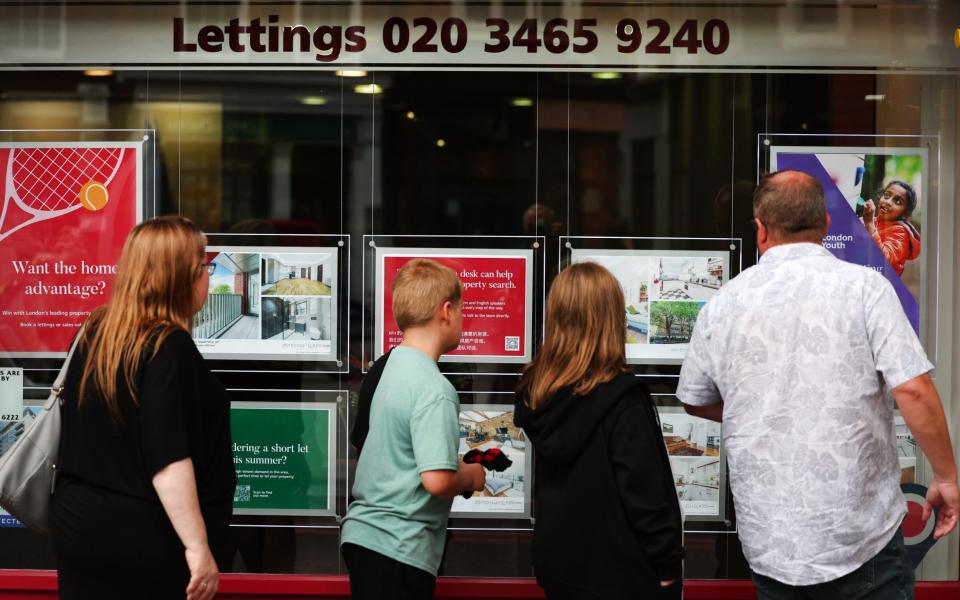One in five first-time buyers now over the age of 40

One in five first-time buyers is now over the age of 40, as more families wait until they have had children before buying a house, according to Santander.
Economic pressures and rising house prices have meant couples are prioritising children before becoming homeowners.
More than one in 10 of those getting on to the housing ladder for the first time have dependents, including children, data from the lender showed.
The average age of a first-time buyer has risen from 32 years old in 2004 to 36 years old in 2022, according to the Office for National Statistics.
Over the past 20 years house prices have nearly doubled, rising 98pc over the period. The average house price was £283,000 in March this year, in March 2004, the average house price in England was just £142,571.
Graham Sellar, head of business development, mortgages, at Santander, said: “With the average age of first-time buyers increasing in the past two decades, it seems more buyers are reaching other key moments, such as having children, before getting their foot onto the property ladder.”
The mortgage crunch following increases in the Bank Rate from December 2021 also piled pressure on would-be homeowners.
The Bank of England has held at 5.25pc since last August, and higher than expected inflation numbers last month have pushed out hopes for a cut, which is now predicted for September.
Whereas in July 2020, the average two-year mortgage fix was 1.99pc, by August 2023 this had risen to 6.85pc, according to financial analysts Moneyfacts.
On five-year deals, the rates on offer had jumped to 6.37pc in August 2023 from 2.25pc in July 2020, an increase of 183pc.
Jeremy Leaf, former chairman of the Royal Institution of Chartered Surveyors, said: “Buying a house has been lower on the priorities list, rather than at the top end.”
He said that the types of properties that first-time buyers are looking for has changed.
“Increasingly first-time buyers are skipping the lower rung of the ladder and going straight to a two-bedroom house or a three-bedroom house if they can. In many cases, they have to rely on parental support to get those steps on the ladder, otherwise, it’s just totally unaffordable.”
For a home worth £283,000 bought with a 10pc deposit, the increase in mortgage rates results in repayments on a 25-year mortgage jump from £1,110.82 to £1,699.12.
As the mortgage crunch begins to ease, with hopes of a Bank Rate cut this year, house prices are expected to increase by £60,000 in the next five years.
Estate agency Savills significantly upgraded its forecasts in May, and now expects house prices to grow by 2.5pc this year, rather than the 3pc fall that had previously been predicted.
Its five-year price growth forecast has been upgraded from 17.9pc to 21.6pc. By 2028, the average UK house price will be £346,500, Savills said, an increase of £61,500.
The news comes as political parties vie to win the votes of first-time buyers. The Conservative Party has announced a new help to buy scheme to boost homeownership. If elected back to government the party will provide an equity loan for buyers for 20pc of the value of the property.
They are also offering two years capital gains tax relief for landlords who sell their properties to sitting tenants in order to make more housing available for buyers.
At the same time the Labour Party has said it will extend the mortgage guarantee scheme which helps people buy with a deposit of just 5pc of the property value. If it comes to power, the party is also expected to introduce new rules that will require developers to first advertise new properties to people who live nearby, in an attempt to curb mass purchases by foreign businesses.


 Yahoo Finance
Yahoo Finance 